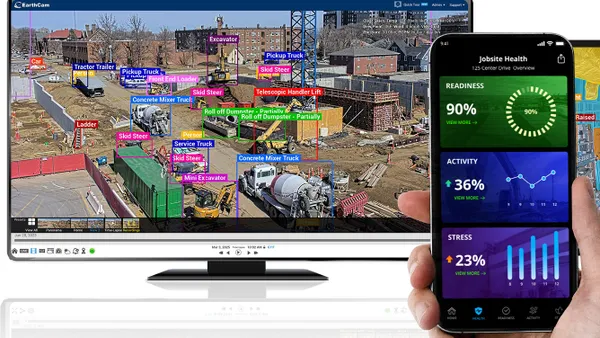Construction payments firm Billd secured a $100 million debt facility to fund its subcontractor customers' short-term cash flow needs, the company announced.
The warehouse-lending finance structure was led by Philadelphia-based asset-backed securities investor LL Funds. On top of the debt facility, LL Funds also holds equity in the company, according to Jon Katz, Billd’s vice president of marketing. Warehouse lending lets a borrower provide loans to others without using its own capital.
Billd, which was founded in 2018, is continuing its advancement into a contech market that is hungry for fintech service providers as more and more subcontractors turn to payments companies. Katz said that the debt facility will allow the company to expand their financing more than they could with equity funding rounds.
“We need to run our business,” Katz said.
He compared Billd’s services to that of an e-commerce company, keeping ahead of their cash flow by borrowing money to purchase their inventory, with one key twist for their business model.
“Our inventory just happens to be money,” Katz said.
The debt will be used to fund the company’s core construction material financing program, along with its Pay App Advance product, which helps contractors purchase supplies and other key assets without having to wait months for reimbursement from owners or other trades partners.
To receive funding through Pay App Advance, all Billd requires is for a subcontractor to submit a screenshot of an approved pay application — basically, an invoice for the materials. After confirmation, Billd then deposits the money in the subcontractor's account.
Subcontractors pay interest on the fronted cash, though Billd declined to say how much.
The firm says on its website that its rates are better than those subs would get from their suppliers. Katz also told Construction Dive that users could expect their rates on the funding to be fixed and not fluctuate with broader interest rates, outside of very rare cases.
For Billd itself, however, interest rates on the $100 million will move with the market, a tough proposition given that the Federal Reserve has already raised interest rates six times this year and may continue to do so in its battle against inflation.
The construction material financing industry has also caught the attention of larger contech companies, particularly as the economy teeters on the edge of recession. Procore, one of the largest contech companies in the U.S., is also delving into the construction fintech space.
Katz, however, wasn’t worried about the looming competition — he said that more companies entering the space was a good thing.
“The more companies out there that can support this challenge in the industry and support the subcontractors that are really financing these large commercial projects, the better. I look at it as it's validation for what we're doing,” Katz said.














